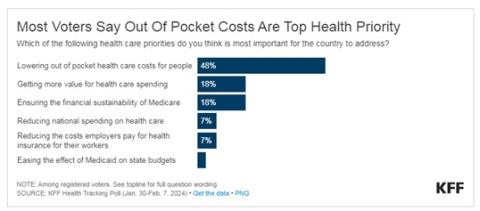
KFF President and CEO Drew Altman explores why the public’s concerns about out-of-pocket health costs make health care affordability the health policy issue most likely to resonate with Americans across the spectrum in this article: Why Affordability Is the Big Tent
The article highlights the increasing importance of affordability in healthcare. This is of particular importance to brokers as you seek to offer affordable coverage options for employers. It emphasizes that people prioritize out-of-pocket costs above all other considerations when it comes to healthcare.
The study shows that the public perceives healthcare costs primarily as bills they can't afford, rather than as a share of total spending. As a result, affordability has become the central theme that resonates most with Americans, regardless of political affiliation.
For health insurance brokers, this means that when selling insurance plans, it’s important to focus on highlighting affordability and how recommended plans can help lower out-of-pocket costs for individuals. It's crucial to understand that healthcare is primarily an economic issue for people, and addressing affordability concerns can significantly influence their decisions.
From a polling perspective, it's important to ask specific questions about healthcare costs rather than general inquiries about health or healthcare. This will better reflect the public's concerns and show that healthcare costs are a significant dimension of economic worries. Additionally, there’s a need to bridge the gap between the “value” movement in healthcare, which focuses on improving quality while lowering costs, and consumer perceptions. Consumers must perceive value-based payment initiatives as relevant to them and see tangible benefits in terms of cost reduction and improved care.
As a broker, addressing affordability concerns when selling insurance plans will align with the public's primary focus on out-of-pocket costs. By understanding and addressing these concerns, brokers can better serve their clients and adapt their approach to meet evolving healthcare priorities.

